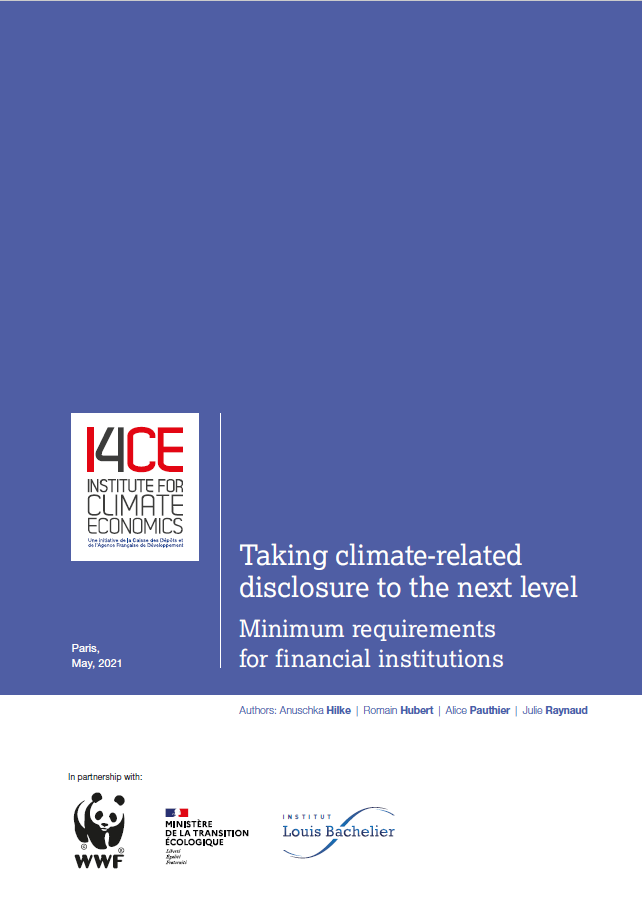Taking climate-related disclosure to the next level – minimum requirements for financial institutions
In 2015, France pioneered requirements for climate-related disclosure from financial institutions, asking them to explain their strategy for integrating climate-related risks and for contributing to the achievement of the Paris Agreement objectives and the French national low-carbon strategy. Three years of implementation yielded mixed results and requirements are in the course of being updated in France (through the implementing decree of article 29 of the Energy and Climate Act) and in Europe (through the SFDR and other legal acts).
In context of the regulatory dynamics, I4CE and Institute Louis Bachelier have made proposals for updating climate-related disclosure frameworks in the financial sector. Some of these proposals were taken up by the draft implementing decree for article 29 of the French Energy and Climate Act that was released for consultation in February 2021.
In this I4CE-ILB report, international financial actors, regulators and their stakeholders will find an explanation of the technical specifications in the implementing decree of article 29 as well as other proposals they can build upon to move forward with sustainability and disclosure.
With the goal of improving the quality of information disclosed, the authors of this report recommend clarifications of disclosure frameworks on two aspects: what areas to disclose about and how to disclose information.
Click on this button to see the image
Clarifying what:
Climate action in the financial sector is discussed with concepts that are understood differently depending on the context and this undermines the quality and comparability of the information disclosed. This covers such terms as “alignment”, “contribution”, “impact”, “doing no harm” or “climate-related risks” and connections between each of them. This report precises the commonly agreed aspects of these concepts, while acknowledging that further efforts for clarification are needed.
Clarifying how:
Besides clarifying the ‘what’, it is also the appropriate timing to clarify further how financial actors should explain their approach to integrate climate-related issues.
Since 2015, a lot of methodologies have emerged to help financial actors analyze their portfolio alignment with a low-carbon trajectory and their exposure to climate-related risks. Based on a review of these methodologies, the authors of the report observed emerging good practices. They also observed limitations in the transparency of key hypotheses and in the relevance of data and analytical choices as well as unclear link between analysis and decision-making.
The authors propose a range of minimum quality requirements in disclosure frameworks. They seek to increase transparency on analytical choices, to stimulate financial actors in using state-of-the-art best analytical practices and in demonstrating sustained efforts to push the boundaries of their analyses.
What is climate reporting for financial institutions? Where do we stand with their climate disclosure? Anuschka Hilke of I4CE presents the main findings of the study in two minutes :

